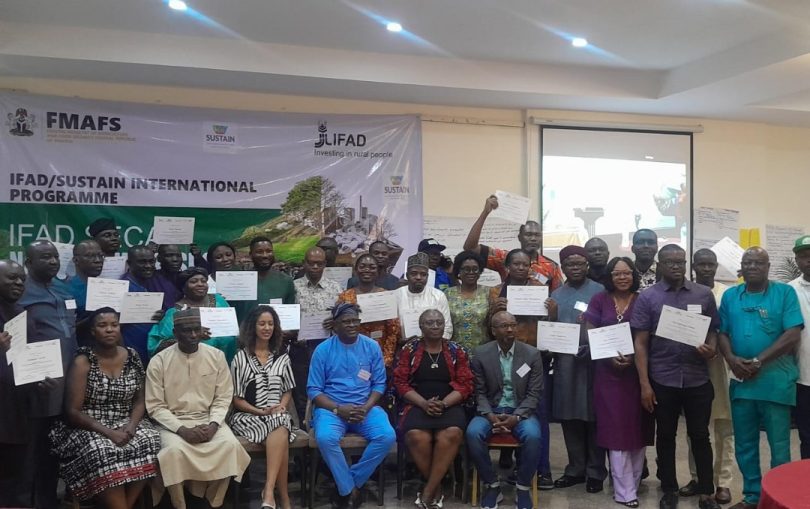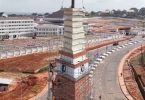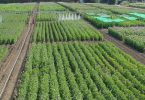• Plot way forward in fight against climate change harms
By Ignatius Chukwu & Blessing Ita
Two weeks of intensive training by the International Fund for Agricultural Development (IFAD) has ended in Port Harcourt, Rivers State, South-South Nigeria.
The first week was for policy makers and decision makers while week two was for professionals and managers of processes.
This is as the war against climate change harms in the agric sector seems to get hotter and experts made up of agric and environment professionals have been equipped to identify problems ahead and find solutions quickly to save farming from flooding, off-season rains, excessive dry season, etc.
They have also been trained to lead in fabrications and other forms of technology to fight the menace of climate change. Part of new skills is finding seeds that are resistant to harsh weather or dry seasons. The International Fund for Agricultural Development (IFAD) anchored the training in Port Harcourt under the ‘SUSTAIN International’ scheme which runs in many countries of the world as part of a global exercise in 59ncountries mostly in Africa and Oceania.
These skills were unveiled to the experts at the IFAD/SUSTAIN International training with focus on Social, Environmental, Climate Assessment Programme (SECAP) scheme which guides every single IFAD-support agric project in Nigeria. The training had experts drawn from within and outside Nigeria including Jenean Pretorius from Clear AA (South Africa), experts in measurement and evaluation.
Stakeholder engagement strategies were demonstrated to showcase their practical application in real projects. The significance of power dynamics was highlighted, emphasizing the need for regularly updated stakeholder data to reflect current realities, which is crucial for effective project implementation at all stages.
Part of the strategies the experts resolved to run with include the formation of the SECAP Community of Practice by seeking to establish a platform for continuous learning, exchange of experiences, and peer support across IFAD programs in Nigeria and around the world.
They also resolved to carry out implementation of SECAP standards whereby participants are expected to integrate the knowledge acquired into their respective projects, ensuring compliance with social, environmental, and climate standards. They will scale down learning to grassroots by extending training outcomes to state-level decision-makers and farmer organizations to ensure broader application and impact.
The participants also resolved to do monitoring and evaluation to track the adoption and impact of the nine SECAP principles across project components. They will also carry out policy advocacy, will follow on field trips findings at all levels carry out emphasis on team work to improve expected SECAP objectives.
Some of the experts spoke on how IFAD/SUSTAIN International has impacted their view of their jobs. Gbemigo Watigere, National Environment and Climate Change Officer for Life-ND, said: “Our commitment is to make sure we spread this concept down. It’s a good learning experience and I will have to commend the facilitators because the teaching was very simplified and it was very practical and hands on.”
Joseph Monday, Environment and Climate Change Officer from VCDP, Nasarawa State, who said he learnt how to integrate SECAP procedure in his activities including training the beneficiaries under him.
Dr Priscilla Achakpa, Consultant to IFAD and Facilitator to SECAP training in Port Harcourt , gave full explanation on the concept, processes, outcomes, and expectations of the IFAD/SUSTAIN International training.
The key objective, she said, is to make them understand why SECAP is very important in their various project components around Nigeria, and that monitoring and evaluation of all IFAD projects would be evaluated along the training SECAP module.
The participants expressed huge appreciation to the Country Director of IFAD, Dede Ekoue, and Abiodun Sanni (PhD), the National Project Coordinator of LIFE-ND that hosted the two Cohorts for two weeks at a top star hotel in the Garden City.
The overall expectation, they said, is that for farmers to be assisted to fight climate change injuries with various mitigations strategies being pushed out by IFAD teams and experts around the world.







